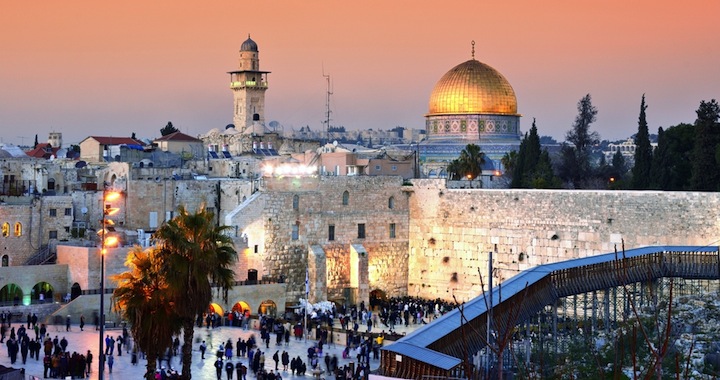In a recent post, CNN national security analyst Peter Bergen asked if the world is heading toward a “Post-Christian Middle East.” Bergen highlighted the plight of Christians in Syria caught between lingering loyalties to the Assad regime and the hostilities of Qaeda-inspired foreign fighters as well as the spate of anti-Christian violence that arose in Egypt following the ouster of President Morsi and the military crackdown on supporters of the Muslim Brotherhood. While Bergen is right to raise this issue, his conclusions may do more harm than good.
Arab and Middle Eastern Christians are experiencing a time of profound pressure. In May of this year, several Christian leaders from throughout the region along with several international guests met in Lebanon to discuss immediate realities and plan for the future. The group produced a statement on Christian presence and witness in the Middle East that is fruitful reading for western audiences, even if the language is at times necessarily vague. Alongside the conference, I was privileged to participate in an audience with the Armenian Orthodox leader, His Holiness Catholicos Aram I of the Holy See of Cilicia. During the meeting, Aram told us that Christianity in the region is facing “an existential threat.”
Bergen is right to raise for American audiences the question of wellbeing for Arab and Middle Eastern Christians. Indeed, Christians throughout the world should be concerned about the variety of threats and situations faced by their sisters and brothers in the Middle East.
Related: Bethlehem, Then & Now – by Rev. Dr. Mitri Raheb
I am confused, however, by Bergen’s concluding thoughts. Noting that “with the creation of the state of Israel and the rise of Arab nationalism and then Islamism, the region has become more hostile to non-Muslims, ” Bergen describes the dwindling population of Jews in Egypt, concluding that “One can only hope that this is not to be the fate of the Christians of the Middle East.”
One can of course do more than hope that the fate of Arab and Middle Eastern Christians is not like that of Arab and Middle Eastern Jews. Moreover, the comparison is disastrously misplaced. Unlike the Zionist foundations of the State of Israel, there is no competing Christian nationalism for the Middle East being promoting either inside or outside the region. In fact, Christian leaders throughout the Middle East—Orthodox, Catholic, Protestant, and others—insist that their communities are integral parts of the fabric of their societies.
There is more to do than simply hope. The conviction among Arab and Middle Eastern Christians that they are integral parts of their societies is informed by their collective memory of presence in the land prior to the advent of Islam and their resilience through centuries of relationship with Muslim neighbors. Today, Christians in the Middle East are working to preserve that historic presence. They are analyzing the political alliances that have brought them woe. They are re-casting their participation in their societies and political systems, finding voices openly critical of emerging authorities, and contributing to the drafting of constitutions. They are not silent.
Related: Women in the Holy Land…Just Like Me – by Lynne Hybels
With their sisters and brothers in the Middle East, Christians around the world can do more than hope. We can listen carefully to Christians in the Middle East, and offer them more than lip-service in response. Rather than receiving their present “existential threat” merely as a confirmation of western anti-Islamic bias, we can learn from Arab and Middle Eastern Christians a new way of comprehending different expressions of Islam and engaging with our Muslim neighbors. Certainly, if we want to respect their desire to remain woven into the fabric of their societies, we should not be calling for their mere protection since this would perpetuate a sense of dependence and a threatening cycle of over-identification with the presumably Christian West.
I do not dispute the difficulties being faced by Christians, especially in Syria and Egypt. In fact, my regular contacts with Christian leaders throughout the region make me more keenly aware of their challenges than many others. While each country is facing its own unique problems, Christians in the Middle East are caught between many manifestations of religiously-sanctioned extremism. Together with friends around the world, we must find effective ways to promote moderate voices among all communities in the region—Muslim, Christian, and Jewish, among others. This promotion of moderation will contribute to sustainable governance. Eventually, this work will benefit Christians, but not at the expense of any of their neighbors.

